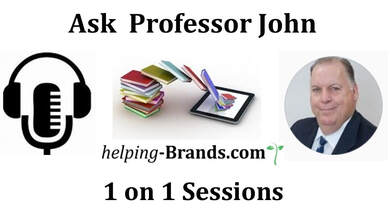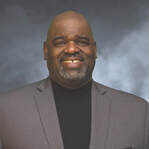Leadership Development 2024
Leadership | Purpose | Vision | Mentoring
Teamwork | Leadership Skills | Emotional Intellegence
LinkedIn Leadership group
Leadership facebook page
Schedule a 1 on 1 session
Top Selling Leadership Books on Amazon
I consider equity, diversity, and inclusion to be an incredibly powerful concepts when one considers the meaning of each word. To illustrate this, equity is a word that conveys empathy and compels us to provide resources according to the individual's needs. Diversity refers to the awareness that there is someone missing due to a policy, procedure, or practice that, on its surface, appears neutral, but actually serves as a mental or physical barrier.
Then there is inclusion, which implies that after we have welcomed a range of highly qualified individuals, we must intentionally include them in decision-making processes or risk unintentionally excluding them. It has long been my conviction that equity, diversity and inclusion cannot simply be a slogan. Instead, these words must communicate to the workforce and to the general public the commitment of the organization's leadership team to disrupt its status quo. All too often, leaders buy into the idea of equity, diversity, and inclusion, but fail to take the necessary steps to empower supervisors, employees, and the Equity, Diversity, and Inclusion (EDI) officer. I am not sure whether this is a deliberate decision or if it is the result of an oversight. In my experience, if leadership is not fully committed, then it will be difficult to change behaviors and beliefs that contributed to the culture of exclusion. While serving in the United States Army, the world's greatest organization, I gained a deep understanding of the 11 Universal Principles of Leadership. The principles teach leaders the importance of self-awareness, empathy, and effective communication skills. When I lead EDI workshops I refer to the 11 Universal Principles, and I'm amazed at how little executive leaders know about the existence of these universal principles. This is not a judgment statement, I am simply pointing out that this valuable information is not universally known. As far as I know, no successful EDI program has ever been implemented without senior leadership support. Conversely I do not possess enough digits to count the number of failed EDI programs that were underfunded and ignored by the very people who insisted that an EDI office be created in the first place. My starting point for this article was to highlight the power of EDI when it is properly supported. To conclude, I would like to note that if you are reading this article, you fall into one of two categories. You are either consciously and intentionally supporting the EDI program in your organization, or you are unconsciously and unintentionally subverting it. I strongly encourage all of you to research the 11 Universal Principles of Leadership, as I am confident that there are solutions there for every problem a leader, teammate, or employee might face. Since 1948, the 11 Principles have been used by the Department of Defense, and if the government can rely on them for national security, I am confident that they will also benefit your organization. -Richard Pete Hill A good leader frequently sets aside quiet time for reflection and journaling. No matter where you are on your personal leadership journey these timeless principles can provide you a useful tool for that periodic review.
1. Know yourself and seek self-improvement 2. Be tactically and technically proficient 3. Seek responsibility and take responsibility for your actions 4. Set the example 5. Know your people and look out for their welfare 6. Keep your people informed 7. Ensure the task is understood, supervised, and accomplished 8. Develop a sense of responsibility among your people 9. Train your people as a team 10. Make sound and timely decisions 11. Employ your unit in accordance with its capabilities SlideShare LeadershipLeadership in Job Search25 Leadership Qualities: Essential Skills & Traits Great Leaders Have
7 Habits You Should Pick Up if You Want to Be Seen as a Leader
1. They Never Speak Too Much 2. They’re Flexible 3. They Don’t Argue 4. They Stay Active in the Community 5. They Think Several Moves Ahead 6. They Time Things Carefully 7. They Distinguish Themselves Leadership is both a research area and a practical skill encompassing the ability of an individual or organization to "lead" or guide other individuals, teams, or entire organizations. The literature debates various viewpoints: contrasting Eastern and Western approaches to leadership, and also (within the West) US vs. European approaches. US academic environments define leadership as "a process of social influence in which a person can enlist the aid and support of others in the accomplishment of a commontask".
Leadership seen from a European and non-academic perspective encompasses a view of a leader who can be moved not only by communitarian goals but also by the search for personal power. Studies of leadership have produced theories involving traits, situational interaction, function, behavior, power, vision and values, charisma, and intelligence, among others.
|
Bill Belichick On Leadership, Winning, Tom Brady Not A 'Great Natural Athlete’ (Exclusive) | CNBChttps://www.youtube.com/watch?v=N2qhLmdpWBI
Great leadership starts with self-leadership | Lars Sudmann | TEDxUCLouvain https://www.youtube.com/watch?v=vlpKyLklDDY How great leaders inspire action | Simon Sinek https://www.youtube.com/watch?v=qp0HIF3SfI4 |
|
1. What is Leadership?
The Characteristics of a Good Leader
What makes a good leader? Here are some of their most important characteristics: Self-Awareness. You have an intimate knowledge of your inner emotional state. You know your strengths and your weaknesses. You know when you’re working in flow and you know when you’re over worked. You know yourself, including your capabilities and your limitations, which allows you to push yourself to your maximum potential. Self-Direction. You’re able to direct yourself effectively and powerfully. You know how to get things done, how to organize tasks and how to avoid procrastination. You know how to generate energy for projects, to calm yourself when angered. You can make decisions quickly when necessary, but can also slow to consider all the options on the table. Vision. You’re working towards a goal that’s greater than yourself. It could be something small, like the success of the team, or a larger vision like world peace. Working towards a vision is far more inspiring than working towards personal gain. Ability to Motivate. Leaders don’t lead by telling people what they have to do. Instead, leaders cause people to want to help them. A key part of this is cultivating your own desire to help others. When others sense that you want to help them, they in turn want to help you. Social Awareness. Understanding social networks and key influences in that social network is another key part of leadership. Who in the organization has the most clout, both officially and unofficially? Who moves the hearts of the group? |
Articles on LeadershipLeadership from belowLeadership AdviceThe traits of a good leader include:
|
Emotional Intelligence Books |
Emotional IntellegenceEmotional intelligence is defined as the ability to understand and manage your own emotions, as well as recognize and influence the emotions of those around you. The term was first coined in 1990 by researchers John Mayer and Peter Salovey, but was later popularized by psychologist Daniel Goleman.
Emotional Intelligence and Leadership
Most of these traits tie directly into emotional intelligence (EQ). Leaders with high EQ are intrinsically more self-aware. They understand their mental processes and know how to direct themselves. They’re more in touch with what they’re deeply passionate about. They naturally care more for others and receive more compassion in return. They’re more socially in tune. Leadership is more often than not about “soft skills” rather than hard skills. Yes, a leader who understands what drives the bottom line is valuable. Yet it’s the leader who can get others to perform at their best who ultimately creates winning organizations. |
Books on MentoringAlumni MentoringThe 10 Most Powerful College Alumni Networks
|
MentoringIn the years since we started NhN we have had a large number of mentoring that has occured through our program to both match up recent college graduates with NhN members and to match members who may be transitioning to other fields with members who are accomplished in those particular fields.
We have found great results when recent grads and our experienced members exchange information and share networking skills and contacts. Recent Graduates looking for a mentor please contact me with your area of interest. Experienced Members who would like to offer to be a mentor please contact me with your area of expertise. Why mentoring is unlike any other professional relationship
Mentoring New Graduates According to an article called "Congrats, graduate - good luck finding a job" that appeared in The San Francisco Chronicle last month, "A recent poll by the National Association of Colleges and Employers found that 22 percent of college recruiters do not plan to hire any fresh graduates this spring, and 43.6 percent said they'll hire fewer graduates than they did last spring." It's a tough job market, especially for fresh faces with little experience. This is where mentoring can really help. Remember, you don't necessarily need to be in a corporate environment to work under the gaze of a mentor: sometimes it's a matter of asking someone to mentor you. Do you know of someone just graduating college or graduate school? Here's some advice you can give the person on how to set up an informal mentoring relationship: Become involved in your alumni association. You've just become an alumnus, so it's a perfect entry to the membership. The alumni association may already have a mentoring program or something like it. Have career conversations with experts in your field. This is different than networking to find a job. Career conversations are focused on listening to someone's career journey. Through these conversations, you will get to know someone and can ascertain if s/he might be the right mentor for you. It will also make it easier to "ask" this person to be your mentor. Don't try to find just any mentor. Find the "right" mentor for you. This means being clear about what you're looking for, what you need in a mentor, and what personality/communication style will work best for you. This takes time and preparation, and if you need some assistance, subscribe to one of our flagship products, Mentor-Quest, as a resource to guide you in finding the right mentor. It's affordable, and it's guaranteed to get your mentoring juices flowing. (Mentor-Quest was recently nominated for a Stevie Award!) Don't give up till you find your mentor. Mentors are invaluable in supporting a mentoree during a job search or in a new job. They offer encouragement, a second opinion, a supportive environment, and they are an advocate of your development. And mentors do this for free! Their satisfaction is being able to see you grow as a result of their support. So as a first step in creating a super future for yourself, find that mentor. © 2013 Management Mentors http://www.nationalmentoringmonth.org/_nmm/images/MPM_Toolkit_FINAL.PDF Training and Development Career DevelopmentIndividual Development Plans Career development planning benefits the individual employee as well as the organization by aligning employee training and development efforts with the organization's mission, goals, and objectives. An individual development plan (IDP) is a tool to assist employees in achieving their personal and professional development goals. IDPs help employees and supervisors set expectations for specific learning objectives and competencies. While an IDP is not a performance evaluation tool or a one-time activity, IDPs allow supervisors to clarify performance expectations. IDPs should be viewed as a partnership between an employee and their supervisor, and involves preparation and continuous feedback. Many agencies require IDPs for new and current employees, and encourage employees to update them annually. When using an IDP, supervisors develop a better understanding of their employees' professional goals, strengths, and development needs. Employees take personal responsibility and accountability for their career development, acquiring or enhancing the skills they need to stay current in their roles. Some of the benefits of an IDP are:
There are no regulatory requirements mandating employees complete IDPs within the Federal Government, although many employee and leadership development programs require IDPs (e.g. PMF Program). Completing IDPs is considered good management practice, and many agencies have developed their own IDP planning process and forms. While there is no one "correct" form for recording an employee's development plan, an effective plan should include, at minimum, the following key elements:
Executive Development Plans While there are no regulatory requirements for IDPs, Senior Executive Service (SES) members are required to have a plan for their continued training and development. Under 5 CFR 412.401, all Senior Executives must complete and regularly update an Executive Development Plan (EDP). Facing constant challenges, changing technologies, and a dynamic environment, executives must pursue ongoing professional executive development to succeed and grow. It is crucial that executives continue to strengthen and enhance their Executive Core Qualifications (ECQs), broaden their perspectives, and strengthen their performance. Federal agencies are required by law (Title 5, U.S. Code, Section 3396) to establish programs for the continuing development of senior executives. SES members are required to prepare, implement, and regularly update an EDP as specified by 5 CFR 412.401. The Executive Development Plan (EDP) is a key tool in assisting executives in their continued development. EDPs should outline a senior executive's short-term and long-term developmental activities which will enhance the executive's performance. These activities should meet organizational needs for leadership, managerial improvement, and results. EDPs should be reviewed annually and revised as appropriate by an Executive Resources Board or similar body designated by the agency to oversee executive development. OPM has developed a sample EDP template for agencies to reference when developing their own EDP form. You can find the sample template and other information on EDPs on the Training and Development Wiki. If you have any questions regarding training policy or executive development, you can contact the Training and Executive Development Group by sending an email to [email protected]. |
Emerging Leaders: Learn to lead with purpose
The Emerging Leaders professional development program is designed to help aspiring leaders in the nonprofit and public sectors develop the leadership capabilities, management skills, and confidence to advance their professional contributions and accelerate their careers.
The program is intended to yield tangible, near-term value to participants (and their employers) and support their longer term leadership development. It employs experiential learning and outside experts and speakers to weave the following learning tracks together:
To learn about the Emerging Leaders experience, you can read more here. To apply, visit the Applications page.
The Emerging Leaders professional development program is designed to help aspiring leaders in the nonprofit and public sectors develop the leadership capabilities, management skills, and confidence to advance their professional contributions and accelerate their careers.
The program is intended to yield tangible, near-term value to participants (and their employers) and support their longer term leadership development. It employs experiential learning and outside experts and speakers to weave the following learning tracks together:
- Hard Nonprofit Skills & Management Training
- Individualized Leadership-in-Action “Stretch” Goals
- Leadership Competencies – e.g., Self-awareness, Team Dynamics
- Advising– Periodic Conversations With Nonprofit Leaders
- Expert Panels and Guest Speakers, Including Executive Directors
- Facilitated Peer Support
- a hybrid cohort, based in New York City
- a 100% virtual cohort, offered on Eastern Standard Time (EST), for professionals in U.S. cities.
To learn about the Emerging Leaders experience, you can read more here. To apply, visit the Applications page.
















